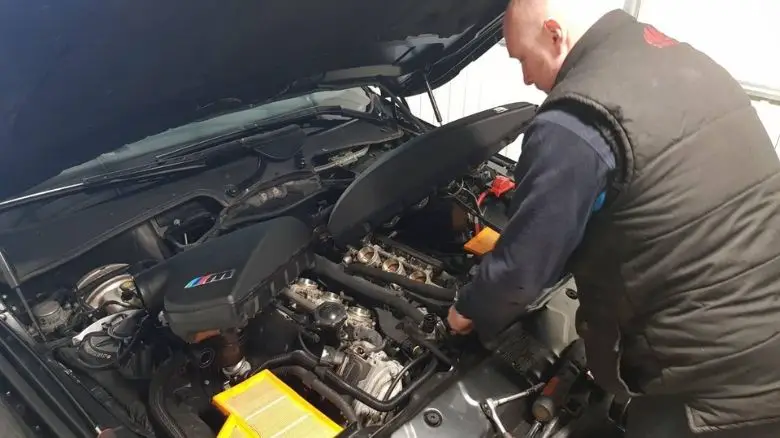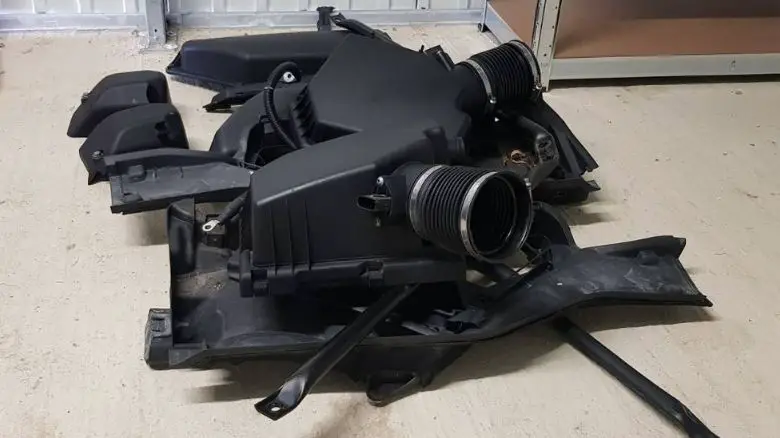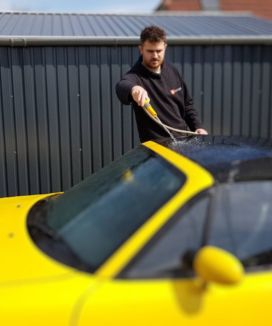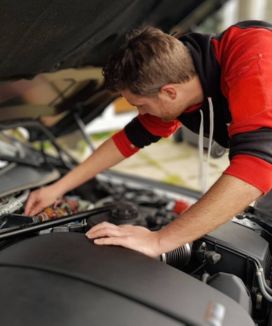Are BMWs Hard to Work On? (And Can Any Mechanic Work on Them?)
Table of Contents
It’s no secret that BMWs are expensive to run, so it’s understandable to want to save money by doing your own repairs or save on dealership prices by finding an independent mechanic.
However, there’s a common perception that BMWs are difficult to work on, and that they’re more complicated than other cars.
Is this perception true? Are BMWs hard to work on?
BMWs can be hard to work on thanks to their complexity, but no more so than most other complex, modern cars. Older BMWs with simpler engines can actually be very easy to work on.
So modern BMWs can be a challenge, but can any mechanic work on a BMW, and can you work on a BMW yourself?
Are BMWs hard to work on yourself?
It can be difficult for individuals to work on BMWs themselves. Unless you’re a trained mechanic armed with the correct tools and knowledge for the job, it’s not advisable to try any complex repairs yourself.
Modern BMWs are not designed with the do-it-yourself mechanic in mind. The more complex cars have become over the years, the more challenging repairs have become.

What would once have been a simple job now requires the use of special tools and diagnostic equipment, making most large-scale repairs beyond the capabilities of a DIYer.
However, there’s still plenty of maintenance and smaller repairs that can be done by the average Joe.
Here at The Car Investor we’ve owned a number of BMWs in our time, and have left the major works to the mechanics. Smaller jobs such as changing the oil, or swapping out relays, bulbs, and air filters have often been done ourselves.
Are BMWs hard to repair?
How difficult a BMW is to repair depends on its age, model, engine, and how many luxury features the car is fitted with. Newer BMWs with all the accessories are more likely to be hard to repair, while older cars with basic components can be easier.
BMWs are considered luxury cars, so are more likely to be fitted with more high-end systems and gadgets than an everyday budget hatchback.
The more complex tech that’s fitted, the more chance there is that it will go wrong, and the harder the car becomes to diagnose and repair.
When we say older BMWs are easier to repair, the main reason is that these older cars weren’t fitted with as many bells and whistles as newer models, so it’s easier to pinpoint problems and access the parts that need to be fixed.
Why do mechanics hate BMW?
Any mechanic working on a BMW needs years of training, access to technical BMW testing and diagnostic equipment, a knowledge of BMW’s processes and procedures, and plenty of patience as many parts can be challenging to access. It’s not hard to see why some mechanics hate BMWs as a result.
Access is one of the most important factors when it comes to repairing a car. Some components can be hidden behind other parts and require a lot of disassembly before they can be reached.

Even the simplest fix can be hindered by the time it takes to access the component, and will ultimately end up costing the customer in labor charges.
As BMWs are specialist cars, a lot of training is needed to understand the complexities of each model. It can be frustrating for a mechanic who hasn’t had this training to work on a BMW, as they may have to figure some things out as they go along.
Specalist equipment is also required, and with that comes investment. Some mechanics find it easier to just refuse BMW work if they don’t have the right tools, and don’t want to spend out on buying them.
Another reason is that BMW is always at the forefront of technology and design, so each generation is fitted with the latest gadgets. This is part of the reason they are so popular, but it also means that mechanics need to stay on top of the latest developments to keep up with repairs.
Can any mechanic work on a BMW?
Any mechanic can work on a BMW, but it’s best to find one who has experience working on them, has the right equipment for the job, and understands the complexities of BMWs.
As we’ve established, there’s a lot for mechanics to learn if they want to become adept at working on BMWs, so it’s no wonder that some mechanics prefer to avoid them altogether.
This doesn’t mean that you won’t be able to find a mechanic who is willing to work on your car, but you will need to do some research beforehand to make sure they are up-to-date with what’s required.
Thankfully BMWs are plentiful on the roads these days, so finding a local BMW specialist shouldn’t be too difficult.
It’s much better that you spend a little more time researching a mechanic who knows what they’re doing, rather than risk further problems down the line from a bad repair.
Which BMW is easiest to work on?
The E30 3 Series is considered the easiest mass-produced BMW to work on thanks to its simplicity. In general, the older the BMW, the easier it is to work on.

If the E30 is a little too old for you, some of the models that followed it in the late ’80s, ’90s, and even the early 2000s have also been given credit for their ease of repair.
The E34 5 Series and the E36 3 Series are two of the easiest to work on, but keep in mind that the newer a car is, the more complex it is likely to be.
If you’re looking for a post-2000 car that’s easy to work on, a later E46 3 Series or an E39 5 Series are also considered good options.
Once we hit the late 2000s, some of the convoluted electronic systems that were becoming commonplace in BMWs were complicating repairs, and hindering the ability of everyday owners to work on their cars.
If you’re looking to buy a gently-used luxury car that you can work on in your spare time, or perhaps a fixer-upper for you to restore, then these BMWs are definitely worth investigating.
To conclude – how hard are BMWs to work on?
The answer is complex. There are some aspects of BMWs that make them difficult for DIYers, but there are also some repairs that can easily be completed at home if you know what you’re doing.
Realistically, large-scale repairs and scheduled maintenance should only be carried out by mechanics who have experience with BMWs, as the time and equipment needed for many jobs can be frustrating for those who aren’t familiar with the make.
In general though, if you choose an older BMW rather than a modern one, the difficulty is reduced immensely. And older cars provide a great learning platform for those who want to understand how to work on cars.
Most technologically advanced cars of today will have similar problems to BMWs when it comes to individuals working on them themselves, so whilst there is some merit to the claim that BMWs are hard to work on, the playing field is now more level than ever.
ABOUT THE AUTHOR
Adam Chinn writes about the intersecting worlds of classic cars, driving pleasure, and smart investment strategies. Starting his journey at 26, he’s proven that one doesn’t need to be wealthy to begin investing in classic cars.
Adam’s insights have been recognized on platforms such as MoneyInc, Swagger Magazine, and Top Speed.



